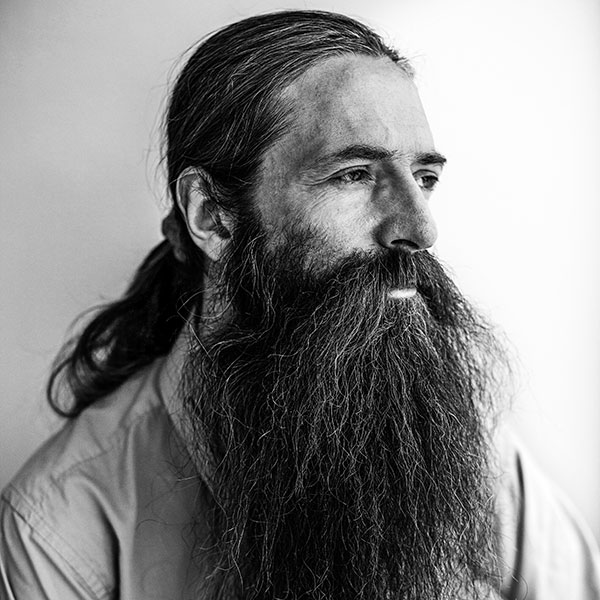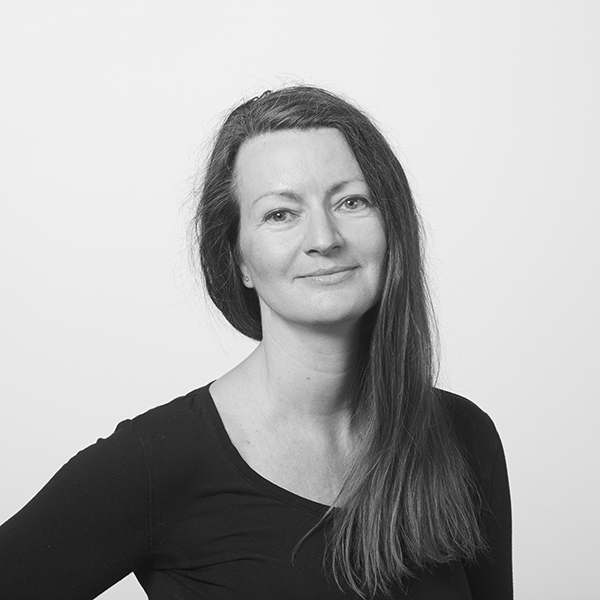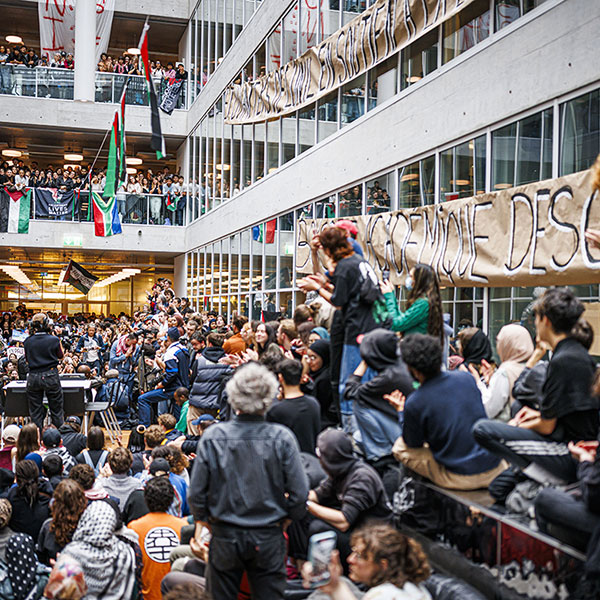Debate
Should old age be treated as a disease?
Do we just grow old, or is ageing actually a disease? There are contrasting ways of looking at this phenomenon: some want to live for ever, while others find ageing a meaningful process we should cherish.


The second process is the late-in-life emergence and progression of health problems bringing about a decline in mental and physical function, themselves arising from the accrual of those changes beyond levels the body has evolved to tolerate.
Because the second process is undesirable, it’s appropriate to describe the changes that link these two processes (since they are the consequences of the lifelong process and the causes of the late-life process) as ‘damage’. Conventionally, some of the health problems arising from the second process – such as Alzheimer’s, most cancers, and type 2 diabetes – are termed ‘diseases’, whereas others – such as frailty, sarcopenia or immune senescence – are classified as ‘ageing itself’. However, this is an entirely vacuous semantic distinction with no biological basis whatsoever: in reality, the so-called diseases of ageing are merely the aspects of ageing that we have chosen to give disease-like names to. Thus, whether or not we choose to call ageing a disease (or a collection of diseases), it should absolutely be treated as a disease, because it is a medical problem. As ageing is a side-effect of being alive, we cannot ‘cure’ it in the same sense that we can cure an infection, which would mean eliminating it from the body with a single treatment. However, by periodically repairing the damage with regenerative medicine such as stem cells and with other methods such as the enzymatic destruction of waste products, we can pre-empt the late-life emergence and progression of health problems and thereby maintain youthful mental and physical function, potentially indefinitely. Moreover, recent advances in laboratories worldwide have unequivocally demonstrated that this is a feasible goal, hence it should be our utmost priority.
Aubrey de Grey is a biomedical gerontologist and Chief Science Officer of the SENS Research Foundation, which aims to prevent age-related decline.
We already began to age even before we were born, and the daily deaths and renewal of our cells are part and parcel of our lives. This process is irreversible, but it can be very different from one person to another, despite our sharing the same biological basics. With individual exceptions such as Pharoah Ramses II, who reached the age of roughly 90, the increase in our average life expectancy is in historical terms a very recent development. Better living conditions and progress in medicine and hygiene have meant that the average life expectancy of human beings has more than doubled in the last 130 years: from 40 years in 1890 to roughly 83 today in Switzerland. The phase of ‘old age’ that most of us experience today – from roughly 65 until death – is a result of this positive development. Researchers believe that the biological boundary for human longevity is roughly 120 years.
The constant process of ageing serves to structure our lives in different phases: childhood and youth, adulthood, advanced adulthood/retirement, and old age. Every phase has its own specific challenges and its own value. We humans know we are finite, and the processual nature of ageing helps us to accept this. Ageing should be neither regarded as a disease nor treated as such, but as a part of the natural course of a human life that in fact attains its intrinsic quality precisely through being finite. It is only in the awareness of our finiteness that human beings can live purposefully. Our experiences become unique because they are neither endlessly repeatable, nor can they be brought about in every phase of our lives.
The process of ageing is a fundamental characteristic of complex organisms. It should not just be seen as a biological process, but as something multidimensional – as a psychological, social, cognitive, even spiritual process – that ought to be valued as part of human development and inherent to our process of inner growth.
The sociologist Sabine Misoch is the director of the IAF Institute for Ageing Research at the University of Applied Sciences of Eastern Switzerland. She researches into interactions with people over 65.


Ageing is best defined as the combination of two processes. The first of these is the accumulation throughout life, literally starting before we are born, of changes to the body’s molecular and cellular structure and composition that arise as side-effects of the body’s normal operation.
The second process is the late-in-life emergence and progression of health problems bringing about a decline in mental and physical function, themselves arising from the accrual of those changes beyond levels the body has evolved to tolerate.
Because the second process is undesirable, it is appropriate to describe the changes that link these two processes (since they are the consequences of the lifelong process and the causes of the late-life process) as ‘damage’. Conventionally, some of the health problems arising from the second process – such as Alzheimer’s, most cancers, and type 2 diabetes – are termed ‘diseases’, whereas others – such as frailty, sarcopenia or immune senescence – are classified as ‘ageing itself’. However, this is an entirely vacuous semantic distinction with no biological basis whatsoever: in reality, the so-called diseases of ageing are merely the aspects of ageing that we have chosen to give disease-like names to. Thus, whether or not we choose to call ageing a disease (or a collection of diseases), it should absolutely be treated as a disease, because it is a medical problem. As ageing is a side-effect of being alive, we cannot ‘cure’ it in the same sense that we can cure an infection, which would mean eliminating it from the body with a single treatment. However, by periodically repairing the damage with regenerative medicine such as stem cells and with other methods such as the enzymatic destruction of waste products, we can pre-empt the late-life emergence and progression of health problems and thereby maintain youthful mental and physical function, potentially indefinitely. Moreover, recent advances in laboratories worldwide have unequivocally demonstrated that this is a feasible goal, hence it should be our utmost priority.
Aubrey de Grey is biomedical gerontologist and Chief Science Officer of the SENS Research Foundation, which aims to prevent age-related decline.
We already began to age even before we were born, and the daily deaths and renewal of our cells are part and parcel of our lives. This process is irreversible, but it can be very different from one person to another, despite our sharing the same biological basics. With individual exceptions such as Pharoah Ramses II, who reached the age of roughly 90, the increase in our average life expectancy is in historical terms a very recent development. Better living conditions and progress in medicine and hygiene have meant that the average life expectancy of human beings has more than doubled in the last 130 years: from 40 years in 1890 to roughly 83 today in Switzerland. The phase of ‘old age’ that most of us experience today – from roughly 65 until death – is a result of this positive development. Researchers believe that the biological boundary for human longevity is roughly 120 years.
The constant process of ageing serves to structure our lives in different phases: childhood and youth, adulthood, advanced adulthood/retirement, and old age. Every phase has its own specific challenges and its own value. We humans know we are finite, and the processual nature of ageing helps us to accept this. Ageing should be neither regarded as a disease nor treated as such, but as a part of the natural course of a human life that in fact attains its intrinsic quality precisely through being finite. It is only in the awareness of our finiteness that human beings can live purposefully. Our experiences become unique because they are neither endlessly repeatable, nor can they be brought about in every phase of our lives.
The process of ageing is a fundamental characteristic of complex organisms. It should not just be seen as a biological process, but as something multidimensional – as a psychological, social, cognitive, even spiritual process – that ought to be valued as part of human development and inherent to our process of inner growth.
The sociologist Sabine Misoch is the director of the IAF Institute for Ageing Research at the University of Applied Sciences of Eastern Switzerland. She researches into interactions with people over 65.




